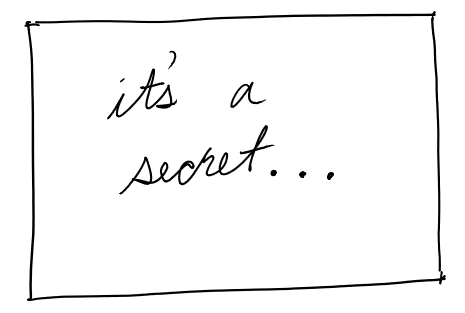Like many folks over the last couple days, I downloaded Secret and started playing with it over the weekend. The NYT even wrote an article about this category of apps. A few thoughts went through my head- is this a gimmick? Are the push notifications too much? Will I have secret fatigue? Yet after a couple days of using the app, I’ve come to believe that anonymity is a powerful new innovation that dramatically lowers the cost of creating content.
This is important because content creation is the heart of any social app. If it’s easy to create compelling content, then that content is quickly shared to other networks, driving viral growth back to its source. A fresh stream of compelling content brings the bulk of any social product’s primary audience – a large group of passive consumers who just want to flip through all the cool photos, videos, tweets, and more, maybe commenting or liking a few they really feel strongly about.
However, content creation is hard. That’s why, famously, only 1% of users will do it. In the last few years, social products have started to innovate around making it easier to create and curate content. I wrote about this previously before in the essay, Constrained media: How disappearing photos, 6 second videos, and 140 characters are conquering the world.
But to summarize, here are some of the ways content creation is being made easier:
Short-form content forces everyone on the platform to keep things casual. For example, Vine’s 6 seconds or Twitter’s 140 characters. This reduces competition and the feeling that you have to do something really long, well thought out, and intense.
Ephemeral content makes everything throwaway, like Snapchat’s photos. If you can’t save it, and look at it later, then it’s no big deal if you send an ugly/uncomposed photo, especially if it’s an ugly duck face selfie.
Mobile content takes advantage of the fact we’re now carrying a bunch of sensors with us at all times. Foursquare makes it easy to share a location by using your phone’s GPS – this is something that’s unique and wouldn’t have been easy 10 years ago. Photo-sharing social apps have exploded now that we all carry cameras 24/7. Wearable computing will lower the barriers even more, and enable ambient/ubiquitous content creation – Runkeeper maps are just the beginning.
Curated content can be great because you don’t have to create the content yourself- you just have to share the link. So whether it’s sharing shopping links on Pinterest or memes on Reddit, all you need to know is copy and paste.
… and now, it’s clear that Anonymous content may be it’s own thing:
Anonymous content makes it easier to share what you really think, without worrying about what other people will think of you. For the last few years, the trend has been towards real identities – but with that paper trail, it’s easy to self-censor. Anonymity removes the desire to self-censor, at least for certain kinds of content.
I think we’ll find that anonymity, just like the other above options, is just a design choice that has its own limitations and tradeoffs. The power of real identity is that your content becomes an extension of yourself. So as long as the content is positive – an accomplishment, or a fancy vacation – then you’re likely to want to share it publicly, attached to your friends, with your real name. But there’s also a world of content we’re all censoring from other people – our insecurities, authentic (sometimes negative) opinions, and so on. – and anonymity is powerful there.
It’s impressive to see entrepreneurs continue to reinvent social paradigms even 10 years after Facebook got started. I remember a few years ago, a smart VC asked me, “why does the world need another social network?” when in fact, it looks like we’ll see many new successful social products over the next few years. Excited to see what else people come up with.
